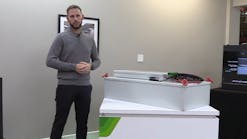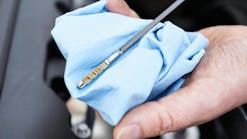Miami International Airport has seen its share of diplomatic dust-ups due to post 9/11 security measures -- from a prince peeved at having to go through security to an island governor-general miffed at having to take off her shoes.
But MIA officials promise they won't be ruffling any foreign feathers this week when ministers from 34 nations fly into South Florida to attend the Organization of American States (OAS) general assembly in Fort Lauderdale.
As many as 20 of the high-level dignitaries are expected to arrive through MIA, a major international hub for Latin America and the Caribbean. They will be welcomed by a special team of airport and government officials the moment they step off the plane.
Others will fly into Fort Lauderdale-Hollywood International Airport, where OAS welcoming parties will greet them, said Jim Reynolds, an airport spokesman.
Though some ministers are already here, today is expected to be the busiest arrival day. With more than 2,100 participants expected at the conference, both airports should be bustling.
MIA officials have plenty of experience dealing with diplomats. The Free Trade Area of the Americas summit in 2003 drew twice the number of VIPs expected at OAS, and MIA passed with flying colors, said Luis Lauredo, a Miami attorney and former U.S. ambassador to the OAS.
But VIPs continue to complain about what they consider less than sterling treatment at MIA, a sign that kinks still need to be worked out, he said.
''Usually the complaints are not about what they were asked to do but how they were asked,'' Lauredo said.
Some examples of past problems:
In April 2004, handlers for the Prince of Spain, Felipe de Borbón, and his bride-to-be, Letizia, fumed as TSA employees examined the royal suitcases in a secured area. Flying in from the Bahamas to catch a connecting flight, the couple failed to notify the State Department early enough for special arrangements to be made.
The royal incident came on the heels of an October 2003 brouhaha at MIA where Dame Ivy Dumont, governor-general of the Bahamas, was required to remove her shoes during security screening. She was so insulted that the Bahamian foreign ministry registered a complaint with the State Department.
Irving Fourcand, chief of the Miami-Dade Aviation Department's protocol office, the only one of its kind in the country, said no embarrassing incidents like that are likely to occur this week.
Fourcand's etiquette-trained staff of eight, along with other federal agencies, are poised to ensure the remaining VIPs' arrival at MIA is fast and easy and controversy free.
''We are more than ready,'' he said.
SEPARATE AREAS
All VIPs will undergo customs and immigration checks upon arrival and security screening on departure, though airport officials plan to process most through separate checkpoints from other passengers.
At MIA, a command center has been set up as a staging area for those who will greet the foreign dignitaries.
Here's how it will work:
The ministers will be met at their jet's door by a team of representatives from their local consulate, the airport's protocol office, U.S. Customs and Border Protection, the State Department and its Diplomatic Security Services, which will provide protection during their stay.
As they step off the plane, the minister, spouses, children, plus an aide, will be quickly processed and allowed to go to their waiting vehicle, Fourcand said.
NORMAL CHECK
The rest of the minister's entourage, however, will be processed like any other passengers. They will move through regular customs and immigration lines.
At the time of departure from MIA, when more rigorous security screening is required, the VIPs will be asked to gather at a consular lounge 45 minutes before their flight.
There, a metal detector and an X-ray machine will be installed just for the private screening of the dignitaries belongings, away from regular passengers, said Lauren Stover spokeswoman for the U.S. Transportation Security Administration in Miami.
TSA employees trained in screening dignitaries will be on duty. But airport security will not be compromised, Stover said. Screenings for the ministers will be standard, just ''as if they went through a normal checkpoint.''




